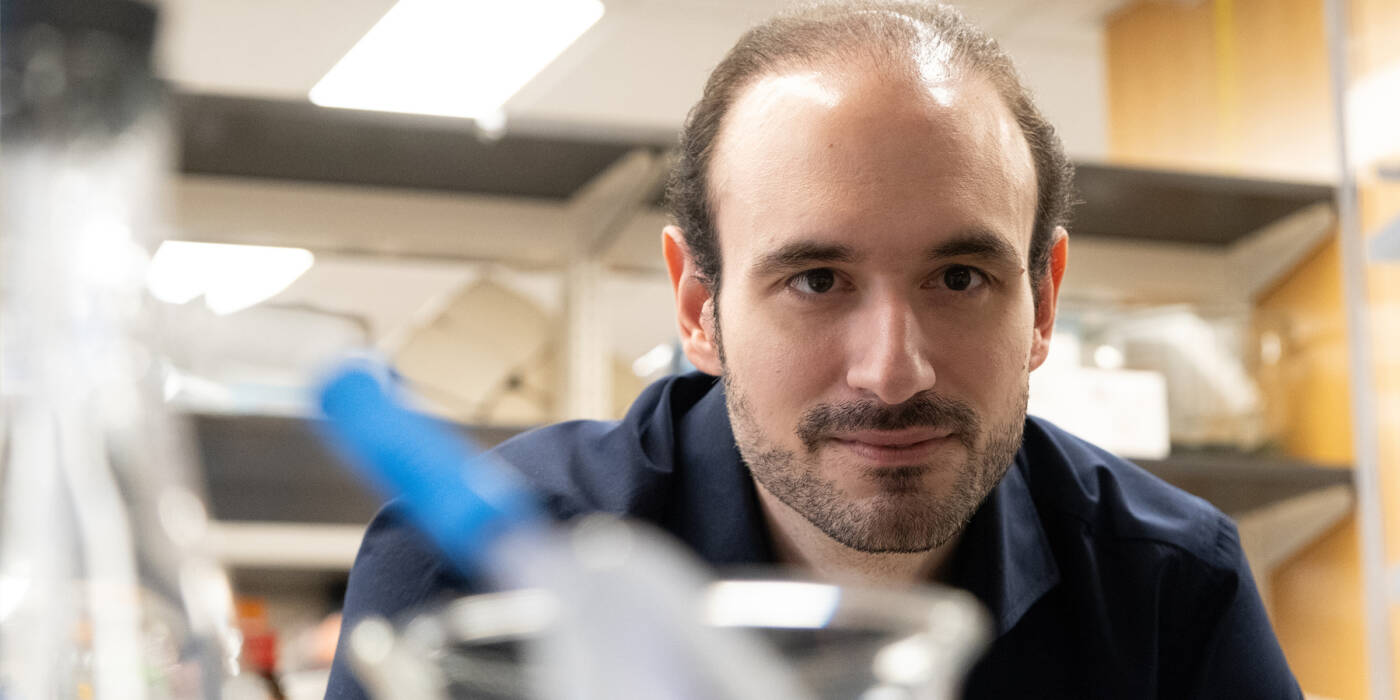Stylianos Bournazos, Ph.D.
Research Associate Professor
- Leonard Wagner Laboratory of Molecular Genetics and Immunology (opens in new window)
IgG antibodies are elicited in response to antigenic challenge following infection or vaccination and can be administered as an effective form of immunotherapy to confer immunity against foreign antigens. IgG-mediated protection is the outcome of the two functional domains of the IgG molecule: the Fab domain, which confers antigenic recognition, and the Fc domain, which signals to the immune system through engagement and activation of specific receptors called Fcγ receptors (FcγRs), expressed on the surface of leukocytes. Bournazos and his colleagues study the biological impact of Fc-FcγR interactions on innate and adaptive immune responses, aiming to optimize the efficacy of antibody-based therapeutics and augment the breadth and durability of immune responses to infection or vaccination.
Over the past few years, Bournazos’s work has demonstrated a critical role for Fc-FcγR interactions in the protective activity of antibodies against bacterial and viral pathogens, including HIV-1, anthrax, Ebola, Influenza, and SARS-CoV-2. These studies determined the in vivo mechanisms by which antibodies mediate effector functions to confer protection, leading to the development and pre-clinical evaluation of engineered Fc-optimized antibodies with improved therapeutic efficacy. A major focus has also been the design of vaccination strategies that target specific FcγR pathways to elicit broad and durable immune responses against viral pathogens, such as influenza and SARS-CoV-2.
Another area of Bournazos’s research has been on the mechanisms by which antiviral antibodies contribute to disease pathogenesis rather than providing protection. The group’s recent studies on the pathogenesis of dengue disease have identified glycan changes at the Fc domain of IgG antibodies as robust predictive biomarkers for symptomatic dengue disease, resulting in the development of new diagnostic approaches to identify patients at risk for developing severe dengue disease. Additionally, their studies on the in vivo immunological mechanisms by which Fc-FcγR interactions drive dengue disease pathogenesis have guided the development of a unique class of therapeutic molecules that target specific FcγR pathways to control dengue disease, having important implications for the therapeutic management of other chronic inflammatory and autoimmune pathologies that are driven by IgG-mediated inflammation.
